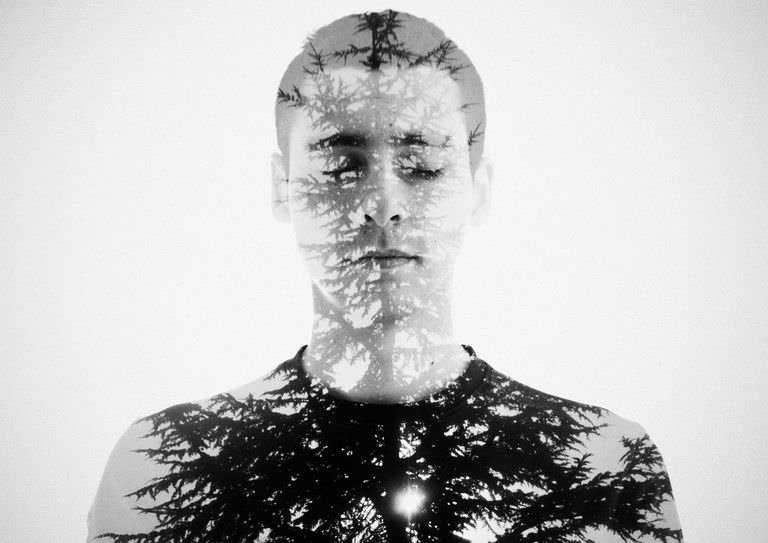





Dreams can be wonderful and exciting and may be terrifying, or a naive stranger can not understand. And if there is no clear scientific consensus on why we dream, we are still a little bit out of the dream world, that is to say, what exactly is happening as we dream.
Here are 10 facts discovered by researchers and scientists in the field of dreams, which most people may not know:
1 - All people dream
No one not dreams of women, men or babies, even those who follow a saying they do not dream. Researchers have found that a man dreams more than once in the night, and every dream takes 5 to 20 minutes, and during human life the total of the individual lives within dreams, up to six years of age.
2 - Most of what you dream of do not remember it
Up to 95 percent of dreams are immediately forgotten by vigilance, and the question is why most of our dreams can not be remembered?
According to theories, cerebral adjustment in the sleep period is different in wakefulness. In other words, the change in brain function during sleep does not allow it to occupy memory in the same way during wakefulness, which weakens the process of storing information and thus is difficult to call after wakefulness.
3 - Dreams are not all colored
Even if 80 percent of dreams are colored, a small percentage of people insist that they only dream of black and white. In experiments, the dreamers were suddenly awakened and asked about the colors they saw from a color chart in front of them. They found that they were choosing colors that were similar to pastels with a smear or soft stroke.
4 - Men and women dream differently
The researchers found differences between the content of dreams in men and women, and a study showed that men have more violent dreams than women, and women's dreams are always longer and the characters are more diverse than men.
As for the characters that usually appear in dreams, men often dream of men - like them - twice as much as they dream of women, while women dream of sex equally without tyranny over one another.
5 - Animals are more likely to dream like us
Have you ever seen a dog shake its tail or move its legs during sleep?
In any case, even if it is difficult to confirm the question of dreams in animals, but the most likely scientists that they dream like us completely.
Animals like humans go through different stages of sleep, until deep sleep enters. In a study on gorillas, the language of instruction was taught as a means of communication. At one point, gorillas' signals during sleep gave evidence that they were dreaming.
6 - You can control your dreams
There is the so-called dream of purity in which you feel that you are dreaming, you know that you are still asleep and that you have not yet awakened. In such dreams, content can be controlled or directed.
Nearly half of humanity lives at least one of the pure experiences of dreams in their lives, and there are those who have the ability to live in the most refined dreams.
7 - Negative emotions are dominant in dreams
For a period of more than 40 years the world Calvin. Hall is collecting more than 50,000 students' dreams, known as "Bank of Dreams". Hall died in 1985, and his findings were released in the 1990s. His student, William Dumhoff, revealed that the different emotions in dreams come from joy and happiness to fear, but most are the anxiety and negative emotions that overwhelmed the dream world.
8 - Blind people dream as well
While those who lose vision under the age of five do not have visual dreams in their old age, that is, their visual memory in the dream is zero, but they continue to dream, regardless of the vision, the dreams of the blind are as complex and vivid as the visionaries.
9 - You are paralyzed during the dream
In the REM sleep stage, which is known as REM, which is one of five stages of sleep, the voluntary muscles of the body are completely paralyzed. The reason? This stage is known as sleepy relaxation. This happens by programming from the brain to protect the person from any behavior or movement. You dream about what affects your external environment negatively, so that you move what you live in your dream to external actions that hurt you or others. This is because most motor neurons block their stimulation, preventing the movement of the body.
Sometimes this condition of paralysis or paralysis is carried out after sleep for up to ten minutes, which is known as "sleep paralysis". Has it ever happened to you that you woke up from an annoying dream to find that you are unable to move your limbs? Even if the experience seems scary, experts advise not to panic. It will only last for minutes and end before the muscles regain normal control of the situation.
10 - Dreams are of a universal nature
Even if it is our own experiences that often control dreams, researchers have noticed that there are specific themes that are repeated among people of different cultures. For example, many people in the world are always confronted with dangers such as falling from high places, being attacked or stalked.
Frequent dreams of school events, freezing and immobility, delayed access, flight, and public disturbance.
Peace, Abundance, and Liberty Network (PALnet) Discord Channel. It's a completely public and open space to all members of the Steemit community who voluntarily choose to be there.Congratulations! This post has been upvoted from the communal account, @minnowsupport, by shandomorocco from the Minnow Support Project. It's a witness project run by aggroed, ausbitbank, teamsteem, theprophet0, someguy123, neoxian, followbtcnews, and netuoso. The goal is to help Steemit grow by supporting Minnows. Please find us at the
If you would like to delegate to the Minnow Support Project you can do so by clicking on the following links: 50SP, 100SP, 250SP, 500SP, 1000SP, 5000SP.
Be sure to leave at least 50SP undelegated on your account.